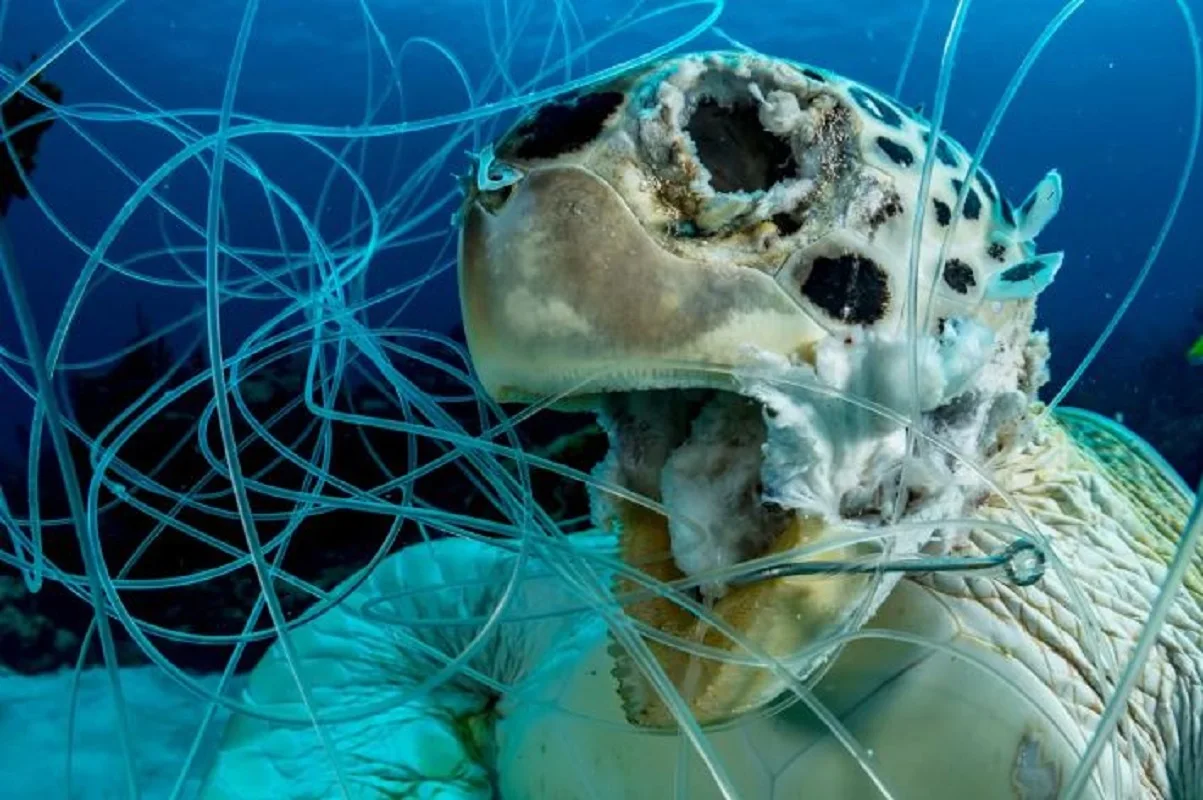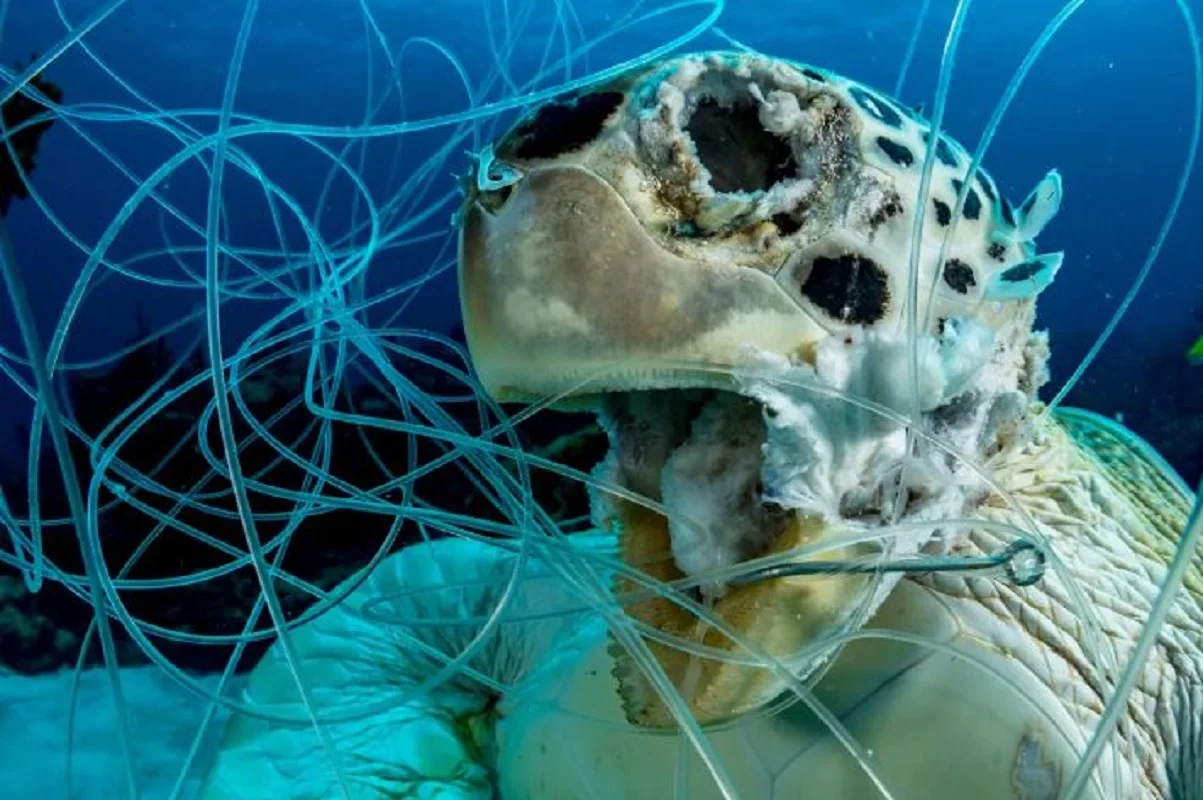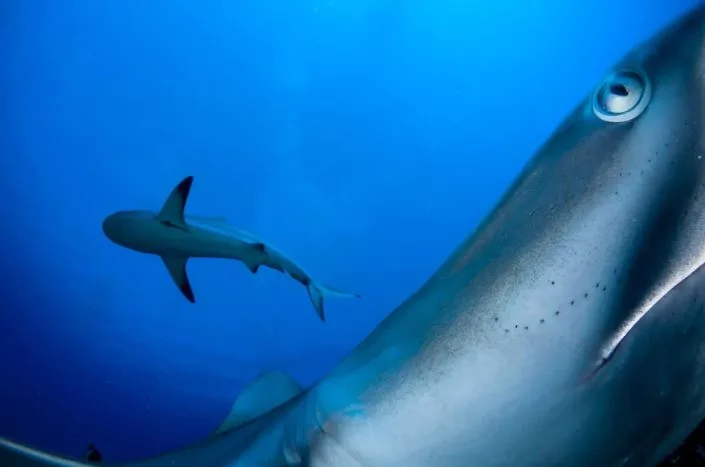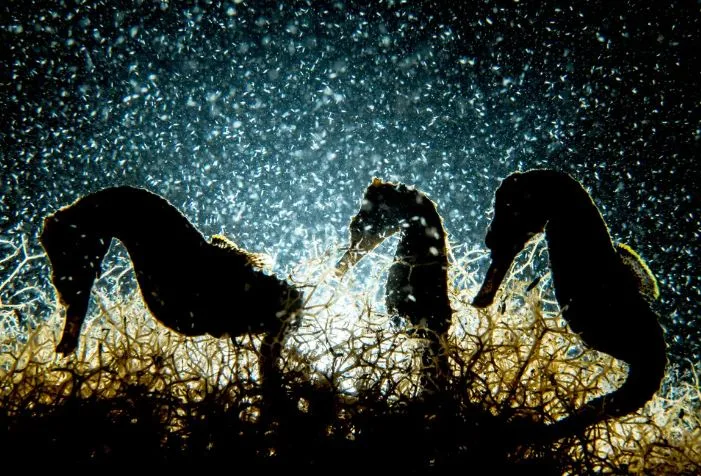
Canadian photographer hopes image of trapped sea turtle will inspire change
A Saskatchewan man's photograph of a turtle ensnared in a fishing line has captured international recognition and a prestigious photography prize.
Now he's hoping fellow Canadians will take note.
Shane Gross was born and raised in Regina and now lives in the Bahamas, where he works as a dive instructor.
In 2017, Gross took a photograph of a bleak situation, where a long-dead sea turtle was caught in a fishing line.
READ MORE: The battle between animals and plastics
The image won first place in the conservation category of the 2019 International Ocean Art Underwater Photo Competition. Photographers from 78 countries entered images and over $85,000 in sponsor prizes have been awarded.
"It was a beautiful day out on the ocean. We were diving one of our normal spots we call 'sea garden,'" Gross said.
His girlfriend was leading a dive tour when they came across the turtle. She returned to the boat and was very emotional at the site, he said.
"There were tears in her eyes," he said. "She started telling me about this poor turtle that was entangled in the fishing line, which was also entangled in the coral, and turtles need to breathe air. So the turtle was so entangled that it couldn't reach the surface to breathe. And essentially the turtle drowned."
FISHING LINE REMOVED, PHOTO TAKEN
Gross decided that since there was nothing they could do for the turtle, they could remove the line and try to raise awareness.
Gross dived to the spot, removed the line to prevent others from getting caught and snapped a photograph.

A dead green sea turtle is hooked and tangled in fishing line as bycatch. Gross's image won first prize in the prestigious International Ocean Art Underwater Photo Competition. (Submitted by Shane Gross)
"This type of thing happens in the ocean every day. We just normally don't get to see it. I mean, nobody wants to see that. But we have to because that's the truth," he said.
This was the eighth time Gross has entered the photography competition but it was the first year it had a conservation category.
"This seemed like a very fitting image," he said. "A category dedicated to images that show humans' impact on the oceans."
Competition judge Scott Gietler, publisher of Underwater Photographer Guide, said in a news release that the winning images in the conservation category "produce powerful emotion, and will influence a new generation of ocean conservation."
IMAGE GENERATES EMOTIONAL RESPONSE
People who see the image have had emotional reactions, Gross said.
"People get quite upset when they see it," he said. "Which I think is a good thing because this is our fault."
Part of the image's "emotional impact" is it appears that the turtle's eyes have been eaten by a scavenger, Gross said.
"That dead stare right into the camera seems to strike people in a very emotional way."
People don't respond to statistics, they respond to individuals, Gross said.
"I hope that this turtle becomes kind of a representative for the oceans as a whole," he said.
Climate change, plastics, over-fishing and invasive species are all altering ocean life, Gross said. He hopes his image will inspire people to rethink their own consumption habits and make some changes.

Caribbean reef sharks swim off Jardines de la Reina — Gardens of the Queen National Park — Cuba. (Submitted by Shane Gross)
"[It's] an individual turtle that is a victim and died in a horrible way because of our negligence. I hope that it can inspire a few people to be better toward the planet," he said.
There's plastic everywhere in the ocean, even far from shore, Gross said. Near his home on Harbour Island in the Bahamas there is a beach he walks every day, he said.
"[There are] flip flops and other plastic items washing up on the beach every single day. And there are people, their whole job is just cleaning that beach," he said. "So tourists don't have to look at it."
"You go to a beach that isn't being cleaned every day and it's just, you can barely see the sand because there's so much plastic in it," he said.
"I'm still hopeful because there is still a lot of beauty," Gross said.

A trio — two males and a female — of lined seahorses in an alkaline pond in the Bahamas, which is known to have the highest density of seahorses on Earth. (Submitted by Shane Gross)
He said he sees live turtles, sharks, stingrays, octopuses and more, but there are fewer animals when compared to eight years ago when Gross first moved there.
Corporations and businesses will need to step up to create change, he said, and individual consumers can hold them accountable for it.
"There's a lot of problems — but there is still hope," he said. "I have to believe in hope."
Thumbnail courtesy of Shane Gross.
Story was originally published on CBC.ca and was written by Heidi Atter/CBC News, with files from The Morning Edition.










